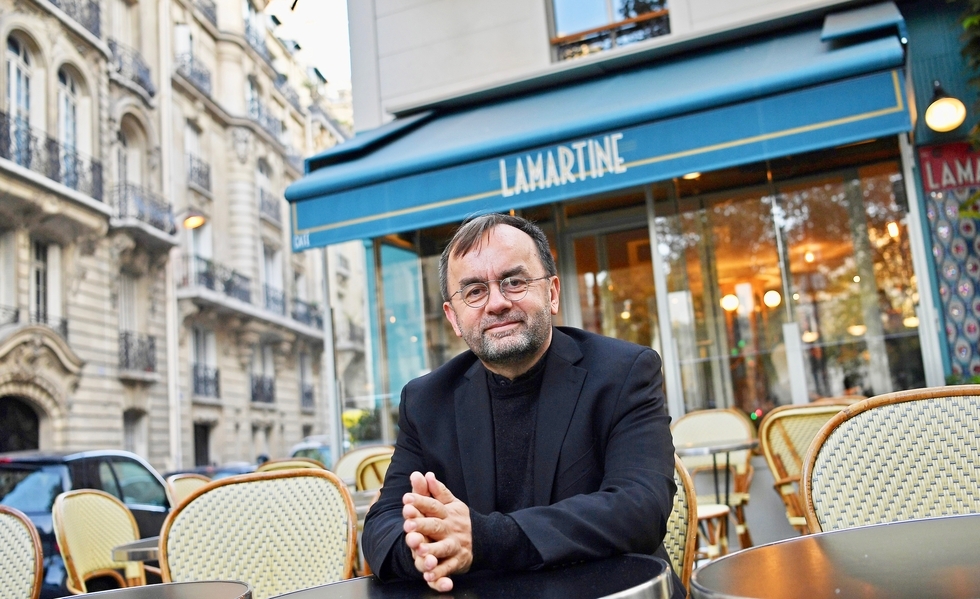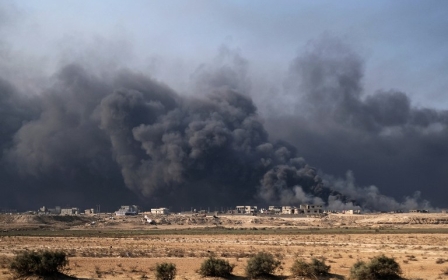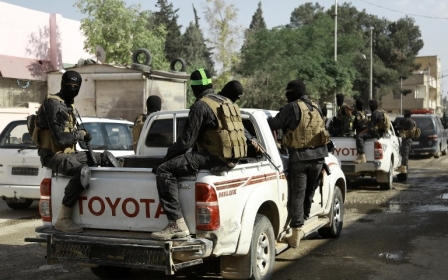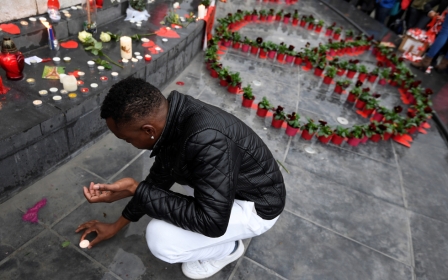Islamic State’s militant training of children revealed in French book

By PAULINE TALAGRAND and NATHALIE ALONSO
The Islamic State (IS) group may be teetering on the brink of collapse but the militants are creating an entire new generation of would-be terrorists, according to a book written by a French Catholic priest describing the daily lives of three boys.
The Yazidi children, forced into training camps by IS, spend their days studying the Quran and learning to fire automatic weapons; they even have their own custom-made bomb belts.
"The Daesh [another term for IS] training camps are machines that crush children until they forget where they come from" and "feel close to their torturers, ready to fight for them with their lives," said Patrick Desbois, who collected the testimonies of the children.
In his book, The Making of Terrorists, published in French, Desbois describes the ultraviolent daily lives of the three young boys, Jotiar, aged nine, Schvan, 14, and Diar, 15.
"They have to get up early, study the Quran and then they're trained in pain resistance and a specialisation," Desbois told AFP.
Those specialisations include using a Kalashnikov, sniper fire, laying bombs and becoming a suicide bomber.
The children "all have an explosive belt adapted to their size, a Kalashnikov and grenades," he said.
Diar told him: "We didn't feel anything. We felt we were Daesh."
Militant teaching
Some of the children even witnessed or, worse still, took part in executions.
In school, even core subjects have been given a militant flavour.
"In the mathematics class, they would learn what is a bullet plus a bullet, or a rocket plus a rocket," Salem Abdel Mohsen, a father who did not send his children to school under IS in the small Iraqi village of Jaraf, said recently.
But it is the return to Europe of a mini-army of radicalised and desensitised children that is perhaps most feared by security services.
As IS continues to lose ground in Iraq and Syria, French Prime Minister Manuel Valls said earlier this month that returning militants must be the "main worry" in terms of security for the next "five to 10 years".
Belgian federal prosecutor Frederic Van Leeuw told AFP that European countries needed to be trained in how to deal with children "educated in violence".
"We already have people making contact with embassies in order to return - mainly women and children," said Van Leeuw.
Many of these children were born in IS territory.
According to a British counter-terrorism think-tank, the Quilliam Foundation, IS is planning for a next generation of fighters that will be "better and more lethal" than themselves, as "rather than being converted into radical ideologies" the children have been "indoctrinated" from birth.
Quilliam says there are about 31,000 pregnant women in IS held territory.
'Desensitised to violence'
French public prosecutor Francois Molins said the worry was that IS trained children would be "ticking time bombs" upon their return.
"For the last few months, IS has stepped up its efforts to recruit child soldiers by publishing videos on the internet showing very young fighters," added Molins in a recent statement.
By showing their "cubs of the caliphate," the militant organisation is trying to demonstrate its ability to "train, religiously as much as militarily, the offspring" of its members to "show Western countries" the "longevity" of the threat facing them.
A video in July 2015 in which 25 adolescents executed prisoners in Palmyra was an example of this type of propaganda.
Among the hundreds of children trained in IS camps are the younger brother of one of the coordinators of the 2015 Paris attacks and a 12-year-old nephew of Mohamed Merah, who murdered seven people in southwestern France in 2012 in a spate of attacks.
Merah's nephew can be seen showing no emotion as he executes a hostage.
As a Europol report from July warned, "IS propaganda suggests that minors are being trained to become the next generation of fighters" that are "desensitised to, and participating in, violence".
Middle East Eye propose une couverture et une analyse indépendantes et incomparables du Moyen-Orient, de l’Afrique du Nord et d’autres régions du monde. Pour en savoir plus sur la reprise de ce contenu et les frais qui s’appliquent, veuillez remplir ce formulaire [en anglais]. Pour en savoir plus sur MEE, cliquez ici [en anglais].




